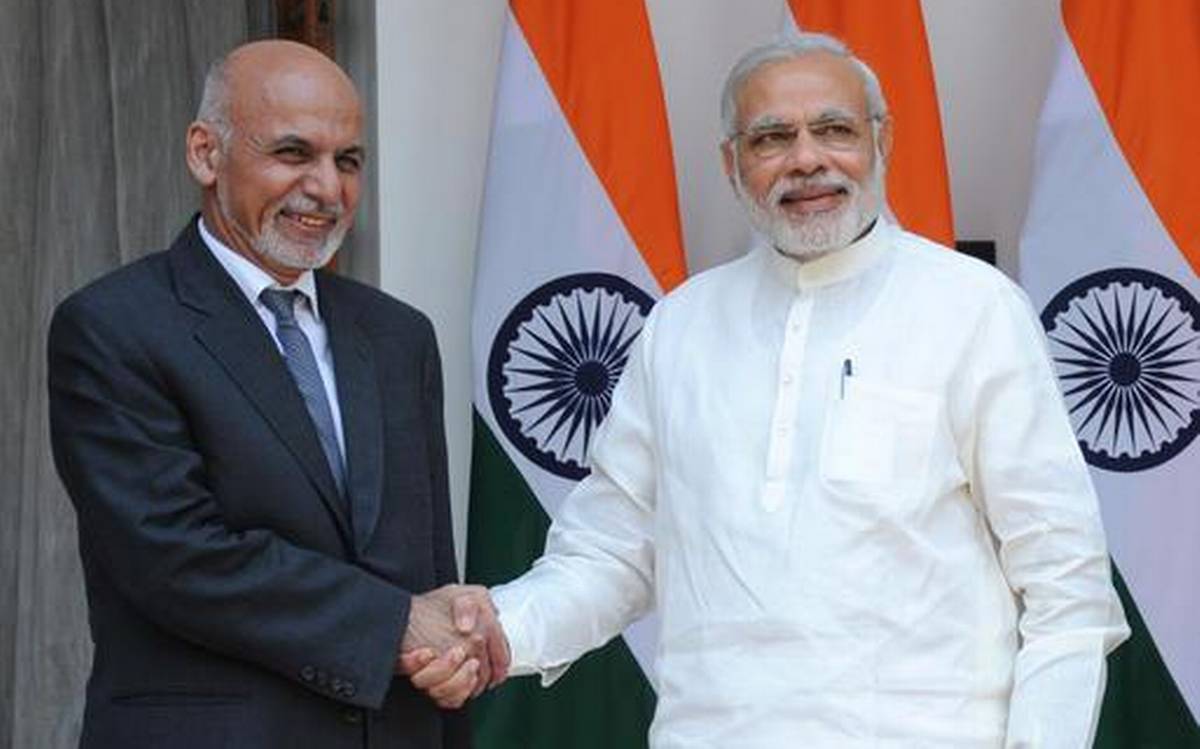India’s renewed Afghanistan strategy – a welcome change
| India Afghanistan Strategy – Since independence, India has maintained a foreign policy of neutrality. In other words, our foreign policy has been too measured or cautious in nature. The reasons can be as diverse as abiding by the core values of peaceful co-existence to being deficient in strategic vision needed at the world stage.
India’s traditional approach of ‘non-alignment’ imbibed from historical lineage may fetch appreciation in an idealistic form but at the geo-strategic arena of sparring nations, it has not yielded the desired dividends. Aspiration of a greater role for our self both at regional and international levels, has always been contested by the forces within on the pretext of timing and need as it will require review of foreign policies. Today, when change or realignment of friendships and forging new alliances is the new normal among the countries, India cannot afford to sit detached. India nurtures dreams of becoming a regional powerhouse and a potent player in the world’s politics but for that it has to shed the image of a fence sitter. An event held recently in Moscow, Afghanistan Peace Conference on 09 Nov 18, has tried to change the very perception within and to the world about India. In a welcome change, two of our former diplomats participated in the conference, though in a muted way, which had Taliban as one of the main participants. If one has to draw conclusions, this step can be termed as a path-breaker in India’s context. It can also serve as a stepping stone to calibrate our foreign policies, especially in the region, primarily related to Afghanistan and Pakistan. Afghanistan Today | India Afghanistan StrategyTable of Contents Today, Afghanistan stands exactly at the same place where it was 40 years back i.e. unstable and unsafe. The power centers in Afghanistan have kept changing over the decades but the outcome has always been the same i.e. no peace in sight. However, this time, the prevailing scenario in Afghanistan wears a thick veil of gloom and pessimism. The reason, the mighty US have not been able to achieve what is pronounced in 2001 and recently in Aug17 by President Trump – defeating and creating Taliban free Afghanistan. With each day passing, the US war in Afghanistan is becoming untenable. Taliban, today, are at their strongest best since 2001, with at least 45 percent of the area of Afghanistan under its control or influence. However, this sordid saga of despair has one ray of hope as it exists in all narratives; the efforts for peace with the Taliban are ever increasing. The Moscow Conference | India Afghanistan StrategyOn 09 Nov 18, Russia hosted a multilateral conference with representatives of Taliban in Moscow along with officials from 11 other countries including Afghanistan, US, China, Pakistan, Iran, India, Uzbekistan, Kyrgyzstan, Tajikistan, Kazakhstan, and Turkmenistan. The main aim of the conference was to initiate a peace process involving the Taliban, Afghanistan and all important stakeholders, to end the war in Afghanistan. Afghanistan was represented by the delegates from a High Peace Council (HPC) appointed by the Afghan government. The conference focused on finding a peaceful solution to the issue of Afghanistan and not on holding negotiations with the Taliban. India was represented by the former envoy to Afghanistan Amar Sinha and former Indian high commissioner to Pakistan T C A Raghavan in a ‘non-official’ capacity. The conduct of, first of its kind, conference with key players and regional stakeholders in itself is a success and has surely set the precedence for future peace talks. As far as India is concerned, it is definitely both surprising and a welcome change in our foreign policy to participate in a conference where the Taliban is the key player. |
We hope that this blog should’ve provided you with all the required details about India Afghanistan Strategy. If you are a candidate preparing for Defence Forces then avail the Best Books or Study Material on MKC Publications. For some further inquiry feel free to call us on: 9696330033/9696220022 or Visit us on:
- Our Official
- Or at Shapath Building, 105/244, Tagore Town, Allahabad – 211002
For detailed information of Notifications, Syllabus or Tips and Tricks, Admit Card Dates, Result, Cut off, Trend Analysis, Information about Physical Fitness Test and Medical Examination and Current Affairs, You can also Visit Our Youtube Channel or follow us on Instagram.
Feel free to share your thoughts about this article on the comment section below.
https://youtu.be/xGlR0eOER-A










